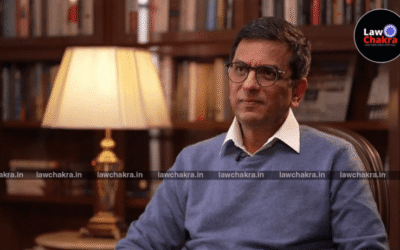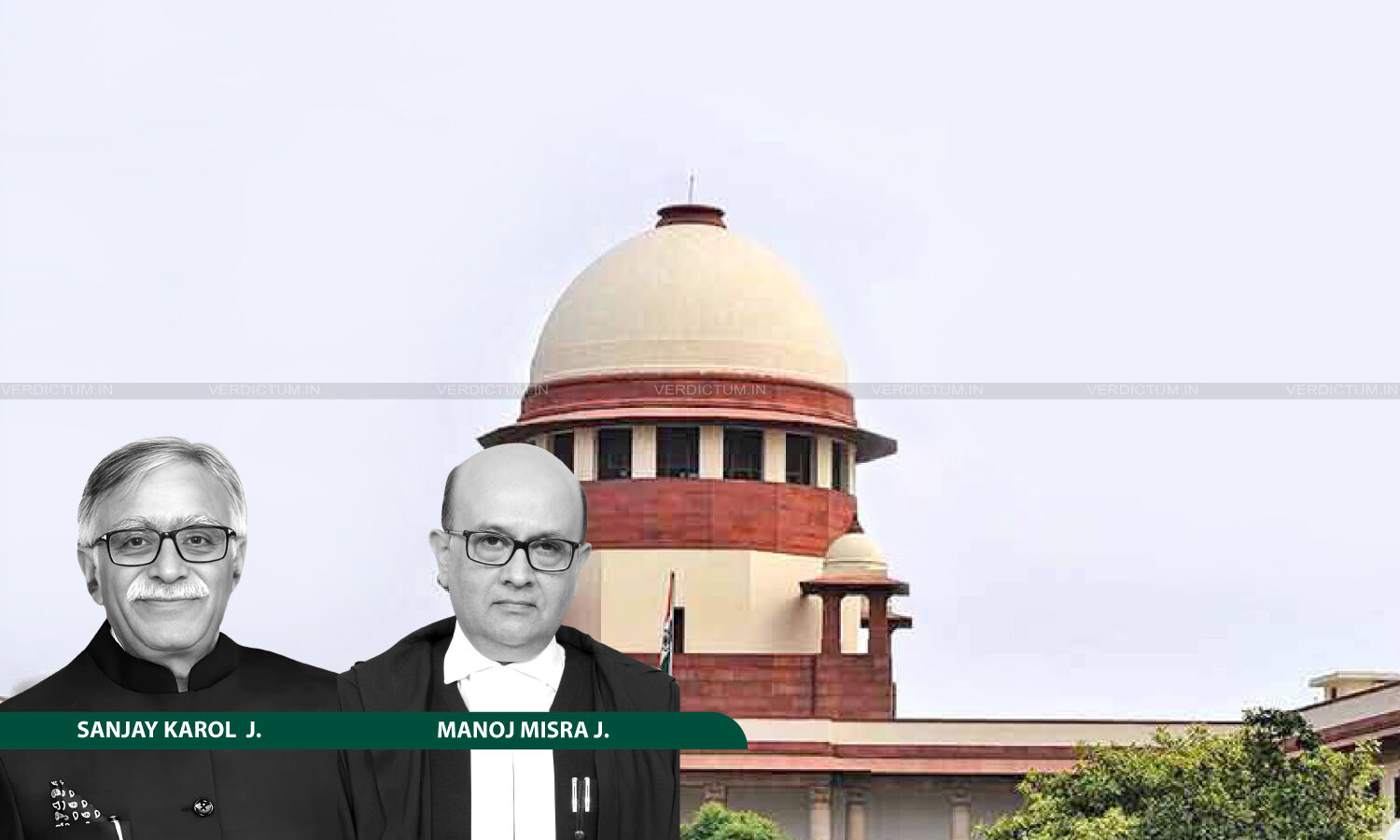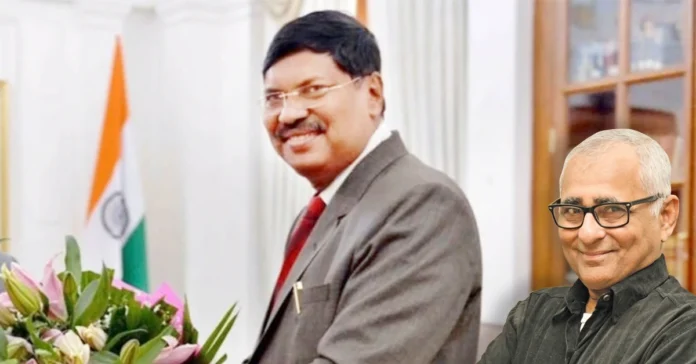Former CJI DY Chandrachud Appointed As Appointing Authority In Wintershall Vs Russia Arbitration Under Energy Charter Treaty

The former Chief Justice of India has been appointed as the new appointing authority in the Energy Charter Treaty arbitration between German energy company Wintershall Dea and Russia. He will be responsible for deciding the challenge against the two remaining arbitrators and for appointing a third arbitrator to the tribunal.

In the ongoing international arbitration between German energy company Wintershall Dea and Russia, former Chief Justice of India Dr DY Chandrachud has been appointed as the Appointing Authority under the Energy Charter Treaty (ECT). This treaty is a multilateral legal framework that facilitates cooperation and dispute resolution in the global energy sector.
Dr Chandrachud, who retired as the Chief Justice of India in November 2024, is globally known for his expertise in constitutional law and philosophy of international law. His recent designation reflects the growing role of eminent jurists from around the world in resolving complex investment disputes involving states and global corporations.
This appointment comes following the resignation of Eduardo Siqueiros as the previous appointing authority on May 22, 2025. The position of appointing authority is a critical one under the rules of the Permanent Court of Arbitration (PCA), especially when disputes arise under the Energy Charter Treaty. The PCA often provides administrative support to tribunals when investors and governments clash under this treaty.
BACKGROUND OF THE CASE
The Wintershall vs Russia dispute reached a sensitive point earlier this year. In April 2025, Wintershall requested the ECT tribunal to issue an anti-suit injunction against legal proceedings in Russian courts. In reply, Moscow asked for a short pause in the arbitration process, also offering to suspend the court proceedings in Russia.
Germany’s former leading oil and gas producer Wintershall Dea has launched two international arbitration proceedings against the Russian Federation, citing violations of international law over the confiscation of its Russian assets. This move comes amid the company’s final phase of winding up its operations after completing the sale of nearly all its oil and gas holdings to UK-listed Harbour Energy.
The arbitration cases, which Wintershall Dea described as a core part of its closure process, stem from the “de-facto economic expropriation that already occurred previously,” as stated by the company. The firm alleges that Russian presidential decrees in December 2023 formalised the transfer of its assets to newly-formed Russian limited liability companies that were designated as successors to five joint ventures previously held with Gazprom.
“These proceedings are based on the Russian Federation’s violations of its obligations under its bilateral investment protection treaty with the Federal Republic of Germany and under the Energy Charter Treaty,” Wintershall Dea said in its official statement.
The company said that President Vladimir Putin’s decrees not only invalidated existing gas sale contracts but also deprived Wintershall Dea of its rights to sell stakes in the Russian ventures. These ventures collectively accounted for the production of 276,000 barrels of oil equivalent per day in 2022. The move also wiped out the company’s access to over €2 billion in cash, which was previously expected from its joint operations with Gazprom.
One of the most damaging decisions, according to the company, was the retroactive price reduction on gas sales, forcing Wintershall Dea and its partners to repay price differences on earlier sales. This had a severe impact on the company’s balance sheets in 2022.
While Russian decrees promise that Wintershall Dea will receive a purchase price for the seized assets as per Russian law, the company emphasised that both “the amount and the possibility to repatriate the funds from Russia are highly uncertain.”
Wintershall Dea had significant stakes in major joint ventures with Gazprom, including:
- 50% in Achimgaz
- 25% in Achim Development
- 25% in Severneftegazprom
Additionally, it held interests in two gas trading companies:
- 25% in Gazprom YRGM Trading
- 18% in Achim Trading
These entities were responsible for the sale and export of hydrocarbons on behalf of the shareholders. Austrian energy company OMV, a minority shareholder in Severneftegazprom and Gazprom YRGM Trading, also had its stakes confiscated in the same wave of asset takeovers.
However, the dispute escalated when one of the arbitrators resigned, citing that Russia had failed to act on his request to end its domestic court injunctions and protect the arbitration tribunal and its legal team from prosecution. This refusal led to concerns over the safety and autonomy of the arbitration process.
In May 2025, the ECT tribunal — now operating with only two arbitrators — issued a procedural order temporarily pausing the arbitration on the condition that Russia must terminate its local court injunctions. The tribunal also mentioned that those Russian legal actions violated the arbitration agreement.
On May 24, 2025, the two remaining arbitrators passed a fresh order to resume arbitration proceedings and clearly instructed Russia to terminate the injunctions immediately. They also directed that no new legal action should be taken that could harm the arbitration process.
In the background of this dispute are decisions made by Russia in December 2023, where Russian authorities transferred Wintershall’s stakes in the Yuzhno-Russkoye oil and gas condensate field and Achimov gas projects to newly created Russian companies. These assets were later offered for sale to Gazovyye Tekhnologii, a Russian company.
Wintershall started arbitration under the ECT to challenge this action. Russia, however, consistently objected to the arbitration, arguing that such matters must be handled only by Russian courts.
Interestingly, Russia has now filed a challenge against the two remaining arbitrators in the case. Meanwhile, Wintershall has requested the tribunal to move the seat of arbitration from Dubai to London, citing concerns about neutrality and legal security.
As of now, the tribunal has deferred its decision on the relocation of the arbitration seat, stating that the matter will be resolved after either the tribunal is reconstituted or Russia’s challenge against the two arbitrators is settled, whichever happens first.
Under the Energy Charter Treaty, the Appointing Authority plays a key role. This includes helping parties set up the arbitral tribunal when they cannot agree on the appointments themselves. Dr DY Chandrachud’s entry into this role is expected to bring credibility and fairness to the dispute resolution process.
Dr Chandrachud had a distinguished tenure as the Chief Justice of India from November 2022 to November 2024, after which Justice Sanjiv Khanna took over the position and also retired in May 2025.




